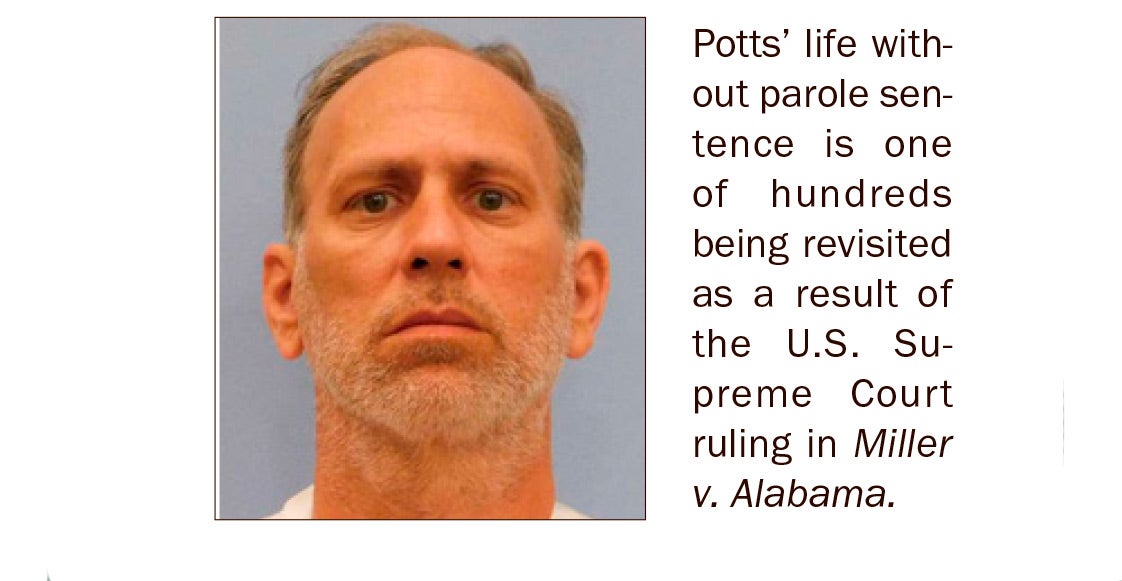Attorneys: 1981 sentence was wrong
Published 9:46 am Friday, August 11, 2017
Potts, 54, has served 36 years for murder
Attorneys for a man convicted of murder in Covington County in 1981 argued Thursday that he is entitled to have a new sentencing hearing if the court is considering resentencing him to life without parole.
Jody Lynn Potts, 54, was found guilty of capital murder in the September, 1980, death of six-year-old Wendy Wakin. The child’s body was found floating in the Conecuh River approximately a quarter of a mile from her home at the Lakeside Trailer Park on U.S. Hwy. 29 North.
Potts, who was 15 at the time, told officers after the child was reported missing that a man had kidnapped the little girl, describing the alleged kidnapper and his truck. Potts, who was originally from Tampa, Fla., had been staying at the trailer park with family for just a few days, according to Star-News archives.
He was tried as an adult and sentenced to life without parole. However, his case is one of hundreds being revisited as a result of the 2012 U.S. Supreme Court ruling in Miller v. Alabama. The ruling said it is unconstitutional to sentence a juvenile to life in prison without parole. At the time Potts was sentenced, Alabama law held that those found guilty of capital murder could be sentenced to death, or life without parole.
Attorney Ashley Adams of the Equal Justice Initiative (EJI) argued before Circuit Judge Lex Short Thursday that when the jury in Potts’ original case voted 10-2 for a life without parole sentence, they determined that he did not deserve the most severe punishment available, which at that time would have been the death penalty. EJI attorney Alicia D’Addario also represented Potts at Thursday’s hearing.
In a second U.S. Supreme Court Case, Montgomery v. Louisiana, Adams said, the Supreme Court made clear that life without parole can only be constitutionally imposed on a juvenile “in the rare case where a child exhibits ‘such irretrievable depravity that rehabilitation is impossible.’ ”
Adams said she believes the court can order that the life without parole sentence be converted to a life sentence without a hearing.
“However, if the court is considering re-sentencing to life without, it will require a full, resentencing hearing, requiring several days of testimony,” she said.
The EJI attorneys requested that Short appoint an attorney to represent Potts if that is the case.
Adams said Potts’ prison records do not indicate that he is “beyond rehabilitation,” which would allow a life without parole sentence.
But Chief Assistant District Attorney Grace Jeter, representing the state, said she intends to seek resentencing to life without parole.
The EJI attorneys said if a resentencing hearing considering life without parole as a sentence is planned, they will appeal that decision to the Alabama Court of Criminal Appeals.
A third option, Adams said, is that Potts could be resentenced to time served.
Potts’ case is one of two affected by the Miller ruling. Circuit Judge Ben Bowden has a hearing scheduled next week in the similar case of Debra Bracewell, one of two defendants found guilty of the 1977 death of Rex Carnley, the owner of Rex Carnley and Sons on Hwy. 84 East of Opp. Bracewell was 17 at the time of Carnley’s death, and also received a life without parole sentence.





